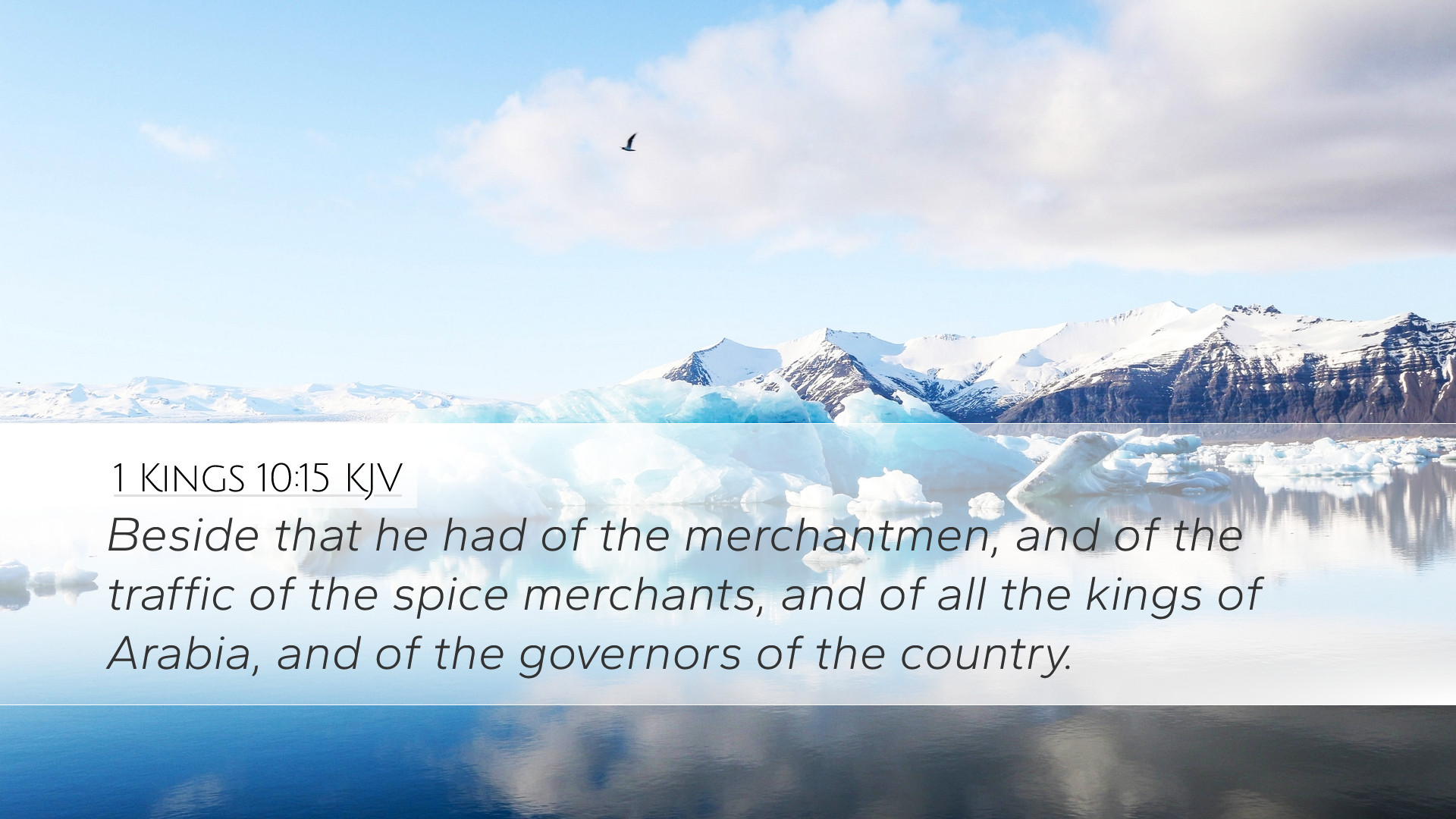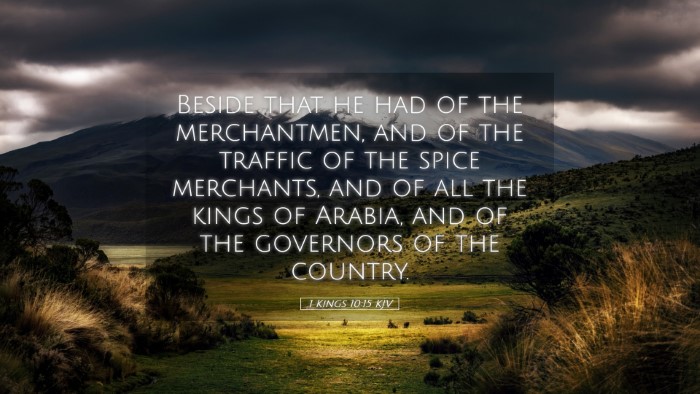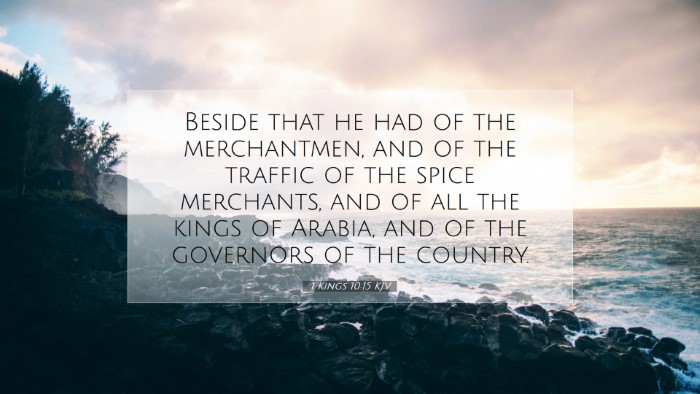Bible Commentary on 1 Kings 10:15
Verse Reference: 1 Kings 10:15 - "Besides that he had of the merchantmen, and of the traffic of the spice merchants, and of all the kings of Arabia, and of the governors of the country."
Contextual Overview
The context of 1 Kings 10 involves the famed visit of the Queen of Sheba to King Solomon, which serves as a pivotal moment that illustrates the height of Solomon's wisdom, wealth, and the glory of the kingdom of Israel. This particular verse focuses on the vast wealth that King Solomon amassed not only through trade but also through tributes from surrounding nations.
Insights from Public Domain Commentaries
Matthew Henry's Commentary
Matthew Henry emphasizes the remarkable prosperity during Solomon’s reign, which reflected God’s promise to him. He notes that the wealth mentioned in this verse shows the extent of Solomon’s dealings and the high regard in which he was held by foreign powers.
- Trade and Tribute: The verse indicates that Solomon’s wealth came from various sources, highlighting that traders and foreign kings recognized his greatness and contributed accordingly.
- Symbol of Wisdom: Henry argues that this wealth is a symbol of the wisdom bestowed upon Solomon by God, proving that the latter’s adherence to divine principles brought not only spiritual insight but also economic success.
- Global Influence: The mention of merchants and kings portrays Solomon’s influence beyond Israel’s borders, suggesting that his governance was a source of fascination and respect among nations.
Albert Barnes' Notes on the Bible
Barnes provides a detailed look at the various sources of income mentioned in this passage. He highlights the significance of trade in the ancient Near Eastern world and how Solomon utilized it to strengthen his kingdom.
- Merchantmen and Spice Trade: Barnes points out that merchants played a crucial role in the economy, especially those involved in the lucrative spice trade, which was pivotal in ancient commerce.
- Political Alliances: The verse implies that the relationships crafted with other nations also served political purposes, allowing Solomon to secure not just material wealth but also alliances that would benefit Israel’s security and influence.
- Cultural Exchange: Barnes highlights that such interactions between nations facilitated a cultural exchange that enriched Israel, allowing for an infusion of diverse ideas and customs.
Adam Clarke's Commentary
Clarke provides a theological reflection on the verse, connecting the material wealth indicated with spiritual lessons for God's people.
- Divine Favor: According to Clarke, the wealth of Solomon was a manifestation of God’s favor. He posits that such blessings serve as a reminder that material success is intertwined with one's faithfulness to God’s commands.
- Warning Against Idolatry: Clarke cautions that while wealth can be a blessing, it can also lead to idolatry if one’s heart is led astray. He calls readers to remember that worldly possessions should be viewed as tools for God’s work rather than ends in themselves.
- Legacy of Wisdom: He argues that Solomon’s wealth should inspire leaders and those in authority to rule wisely and justly, focusing not just on accumulation but on the welfare of the governed as well.
Theological Implications
The implications of 1 Kings 10:15 extend beyond mere economic prosperity. This verse invites deeper theological reflection on the nature of divine blessing, leadership, and the responsibility that accompanies great wealth.
- The Role of Leadership: Solomon’s example calls for leaders to recognize that their positions come with the responsibility to serve their people. Wealth should not promote pride but facilitate service and compassion.
- Divine Providence: The abundance of resources serves as a testament to God’s provision and the reminder to trust in divine guidance in both personal and communal affairs.
- Integration of Faith and Work: Believers are prompted to see the integration of their faith with their professions and trades, understanding that every area of life can reflect God’s glory and contribute to the greater good.
Conclusion
1 Kings 10:15 encapsulates the peak of Solomon's reign, underscoring themes of wealth, wisdom, and the interconnectedness of trade and diplomacy. Insights drawn from Matthew Henry, Albert Barnes, and Adam Clarke illuminate the profound implications of this verse, making it a rich text for pastors, theologians, and students alike. As they reflect on these teachings, readers are encouraged to consider the application of such principles in today’s context, fostering wisdom and humility in the pursuit of both spiritual and material prosperity.


